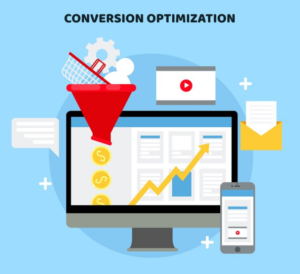Choosing between a direct lender loan and a broker loan can be challenging when looking for a loan. Each option has its benefits and drawbacks, making it crucial to understand which best suits your financial situation. This guide breaks down the key differences, pros and cons, and factors to consider before deciding.
Choosing the right type of loan can make a significant difference in your financial journey. Whether you need funds for an emergency, business investment, or personal expenses, how you obtain your loan matters. The two primary options available are direct lender loans and broker loans. Each option serves different financial needs and comes with distinct advantages and drawbacks. Understanding these differences will help you make an informed decision.
What Is a Direct Lender Loan?
A direct lender loan is provided directly by a financial institution, such as a bank, credit union, or an online lender. This means you borrow money without involving an intermediary. The lender handles the process, from application approval to fund disbursement and repayment collection.
Pros of Direct Lender Loans
- Faster Processing:Since no middleman exists, loan approval and funding are typically quicker.
- Lower Fees:Direct lenders do not charge broker commissions, reducing overall loan costs.
- Transparency:You deal directly with the lender, eliminating third-party miscommunication or hidden charges.
- Personalised Offers:Some lenders offer tailored loan packages based on your creditworthiness and repayment capacity.
Cons of Direct Lender Loans
- Limited Options:You are restricted to the lender’s specific loan products and interest rates.
- Stricter Requirements:Many direct lenders have stringent qualification criteria, making it harder to secure a loan if you have a low credit score.
- Less Guidance:Without a broker, you must research and compare different lenders.
What Is a Broker Loan?
A broker loan involves working with a loan broker, who acts as an intermediary between you and multiple lenders. The broker helps find the best loan options by assessing your financial profile and matching you with suitable lenders.
Pros of Broker Loans
- More Loan Choices:Brokers can access multiple lenders, increasing your chances of finding a loan with favourable terms.
- Expert Guidance:Brokers provide professional advice and help navigate complex loan agreements.
- Higher Approval Chances:A broker can explore alternatives if one lender rejects your application.
- Time-Saving:Instead of applying to multiple lenders, the broker does the legwork for you.
Cons of Broker Loans
- Additional Fees:Brokers charge service fees or commissions, increasing loan costs.
- Less Control:You rely on the broker to communicate with lenders, which may lead to misunderstandings or delays.
- Potential Bias:Some brokers prioritise lenders who offer them higher commissions, which may not always be in your best interest.
Which Option Is Better for You?
The best choice depends on your specific financial situation. Here are some factors to consider:
Choose a Direct Lender Loan If:
- You need fast approval and funding.
- You have a good credit score and meet lender requirements.
- You prefer to avoid broker fees and want a direct transaction.
- You are comfortable researching and comparing lenders yourself.
Choose a Broker Loan If:
- You have a lower credit score and need access to multiple lending options.
- You need professional advice if you are unsure about the best loan product.
- You want to save time by letting a broker handle the application process.
- You are open to paying additional fees for better loan options.
SEO Optimization: Why Keywords Matter
Potential borrowers often use terms like direct lender loan, broker loan, fast loan approval, and best loan options when searching for loans. Including these keywords strategically helps optimise the content for search engines, making it easier for readers to find relevant information.
Conclusion
Both direct lender loans and broker loans have unique advantages and disadvantages. A direct lender might be your best bet if you prioritise speed, transparency, and lower costs. However, a broker loan may be more suitable if you seek flexibility, expert guidance, and access to multiple loan options. Understanding your financial needs and researching available options will help you make a wise borrowing decision.



